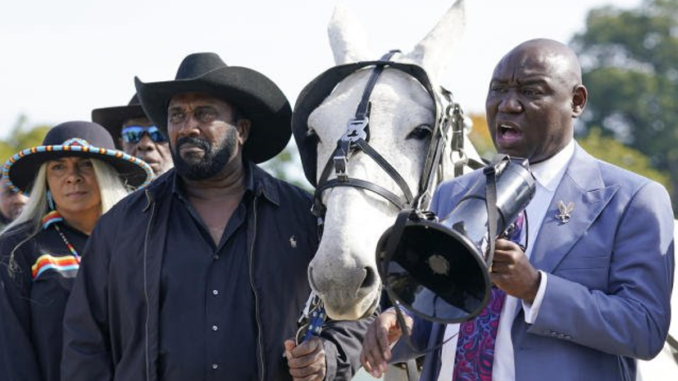
By Christopher Young,
Contributing Writer,
In Mississippi, where racism and oppression persist in full force, we continually call on the Federal government for relief to stem a multitude of injustices. This year alone the Departments of Justice, Labor and Environmental Protection have been working in The Hospitality State on our behalf. In most cases we do get a measure of relief, but not in all cases. This article discusses the Department of Agriculture’s clear record of discrimination – not just in Mississippi, but across the nation – and the ongoing efforts they are making towards correction.
The Environmental Work Group is a non-profit founded in 1993 to empower people with breakthrough research to make informed choices and live a healthy life in a healthy environment. One of their main areas of focus is farming and agriculture, and this article draws heavily from their timeline of the nearly century-long discrimination of black farmers.
In 1920 there were 925,708 black farm operators in the United States, equating to 14 percent of all U.S. farmers. By 1964 that percentage had fallen to 5.8%; by 1982 down to 2.0%, and by 1997 down to less than 1%. In 2017 the timeline reveals 1.7% of all farms in the US are operated by black farmers.
In 1965, the U.S. Commission on Civil Rights found that USDA discriminated against black farmers when providing loans and conservation payments. In 1982, the Commission on Civil Rights documented a broader discrimination that led to the decline of black farmers. A year later in 1983, President Ronald Reagan dismantled the USDA Office of Civil Rights.
From 1990 to 2000 numerous entities have aided us in learning more about USDA’s discrimination, and about efforts toward accountability. They include the House Committee on Government Operations reporting on faulty loan programs, a report by Westover Consultants revealing that USDA was not being held accountable for civil rights violations, similar reports by the U.S. General Accounting Office, a report by consultant D.J. Miller highlighting inequity in subsidies disaster payments and loans.
There were demonstrations by National Black Farmers Association members outside the White House, and in 1999, John Boyd, president of the National Black Farmers Association, brought his mule, Struggle, to Washington, D.C., to protest USDA treatment of black farmers.
Later that year, a settlement was reached in Pigford v. USDA to pay black farmers $1.03 billion. More than 22,000 black farmers sought claims, but only 15,645 received modest payments. More than 61,000 black farmers file late claims, but only 2,585 were accepted.
The Commission on Civil Rights found in 2001 that black farmers wait four times longer than white farmers for farm loans. This was especially stinging, because four years earlier the USDA had published their own Civil Rights Action Team Report detailing a long history of racial bias and discrimination by the agency. Yet it persisted.
In 2008 Congress allowed black farmers originally denied payments from the Pigford settlement to reopen their claims, and two years later provided $1.25 billion in payments for black farmers previously denied payments.
Senators Cory Booker (D-N.J.), Elizabeth Warren (D-MA) and Kirstin Gillibrand (D-N.Y.) introduce Senate Bill 4929 – Justice for Black Farmers Act – in 2020. The Bill was referred to the Senate Finance Committee. Two years later, USDA announced a new program – Discrimination Financial Assistance Program – $2.2 billion in funding available to farmers and ranchers who experienced discrimination by USDA prior to January 1, 2021.
The application process is forty pages long and can be found at www.22007apply.gov. The initial deadline of October 31, 2023 has been extended to January 13, 2024, and any questions about the program and the application can be answered by USDA representatives at 800 721-0970.
“The opening of the application process is an important step in delivering on our commitment of providing financial assistance to those who faced discrimination in USDA farm lending, as swiftly and efficiently as possible,” said Agriculture Secretary Tom Vilsack on July 7, 2023. “USDA will continue to work with our national vendor partners and community-based organizations to make sure eligible farmers, ranchers and forest landowners have clear information about what is available to them, how to apply, and where to obtain assistance with their questions at each step of the way.”
President Abraham Lincoln signed into law an act of Congress establishing the United States Department of Agriculture in 1862. Two and one-half years later, in what would be his final annual message to Congress, Lincoln called USDA “The People’s Department.”
In Part 2 of this article, we will discuss more grant programs and initiatives by USDA and how they are impacting our conditions on the ground in Mississippi and hear from experts on the topic.

Be the first to comment